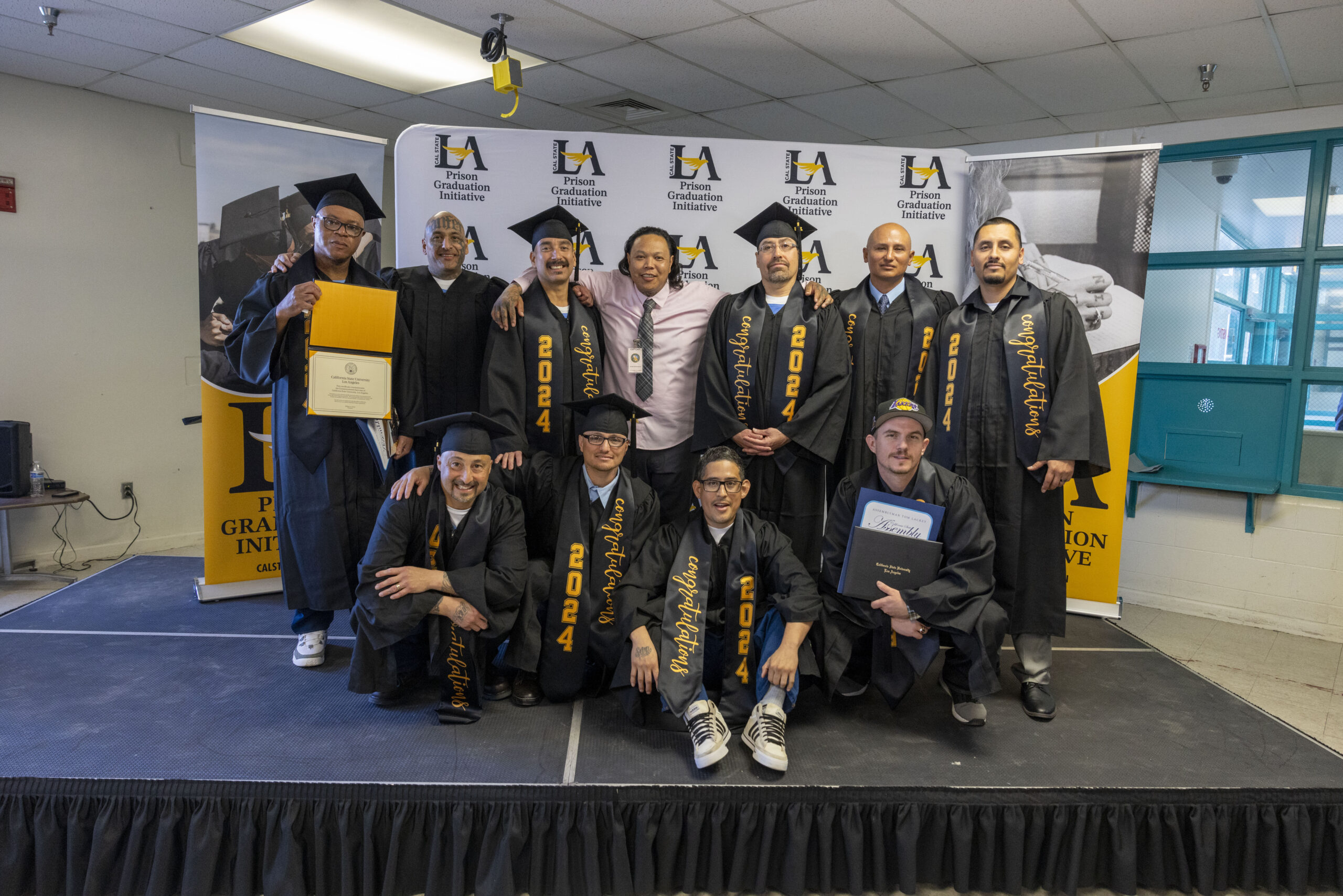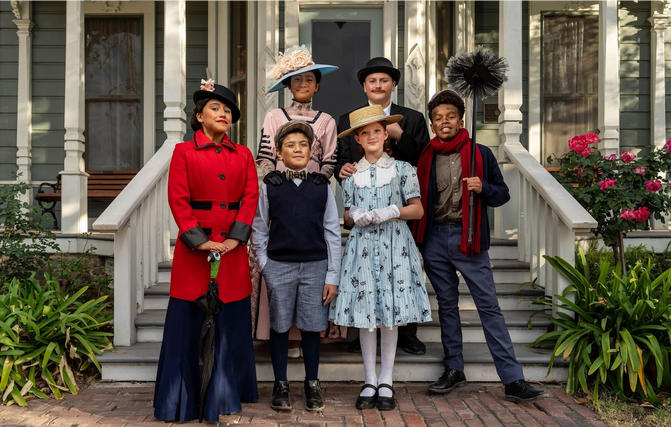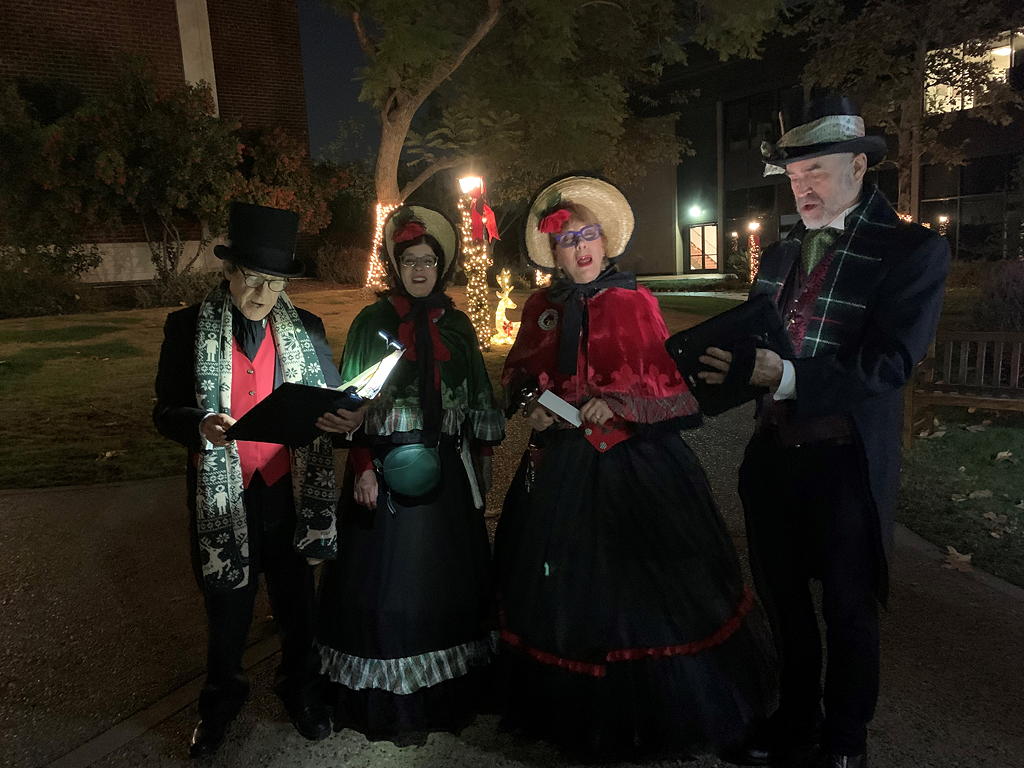Eleven more students graduate from Cal State LA’s innovative program, which was founded in 2016 as the first in-person bachelor’s degree completion program for incarcerated students in California
On his birthday, Freddie Hernandez experienced a “rebirth.”
His second life began when Cal State LA conferred bachelor’s degrees to Hernandez and the 10 other members of the third cohort of the Prison Graduation Initiative (PGI) at the California State Prison, Los Angeles County in Lancaster on Thursday, Dec. 5, which also happened to be Hernandez’s 47th birthday.
As valedictorian, Hernandez spoke about taking advantage of the opportunities provided by PGI, which was founded at Cal State LA in 2016 as the first in-person bachelor’s degree completion program for incarcerated students in California. He talked about making amends for his mistakes, about his improved relationship with his family, about his role as a leader inside and outside the wired fences of Lancaster, and about his rebirth.
“Mentally and spiritually, I have set myself free,” he said. “I am no longer defined by the murder I committed in 1998 when I was 20 years old. Today I am a scholar.”
Hernandez is currently serving a term of life without the possibility of parole (LWOP). He has spent 24 years, more than half of his life, behind bars.
There was little leeway with LWOP sentences when PGI was founded eight years ago.
Even before then, parole was not on the agenda when members of the first three PGI cohorts began taking correspondence classes from community college toward their associate’s degrees. Sentence commutations based partly on personal growth through education would not become a reality for years.
The incarcerated students’ inspiration to learn came from only one place—from within.
“I needed to have a purpose in life; I needed to have a reason to live,” said 48-year-old Casi Amezcua.
“Up to that point, I had been a disappointment to my family. I had been a bad father,” he continued. “So, I asked myself, why not? Why not for once be a good example for your children? Why not prove to myself that I am capable of achieving an A.A., a bachelor’s degree, whatever I set my mind to? It was discouraging at first, because I was looking at a life sentence. At that time, I had no hope whatsoever of getting out. I was doing it for me; I was doing it for my family.”
Amezcua’s sentence was commuted in late 2023, and he was released from Lancaster earlier this year on April 10. He finished his coursework for his bachelor’s degree in communication on-campus at Cal State LA over the summer.
Currently, Amezcua is working part-time for the Center for Employment Opportunities and is also participating in the new Prison to Careers Equity Pathway program at Cal State LA that helps formerly incarcerated college graduates find jobs and reintegrate into the community.
He plans to pursue a master’s degree, but for now he is concentrating on rebuilding his relationship with his parents, who are both in their 80s, and his three adult children, as well finding full-time employment.
PGI Program Manager Bidhan Roy says Amezcua’s motivation is not unique among those who decide to pursue their degrees through PGI.
“Nearly all our students,” he said, “recall a point, a pivotal point, where they left education at some period around high school. Most of our students have stories of being told they weren’t college material, they lacked intelligence, they were stupid, or they didn’t have any value. And so, to be able to complete this program is very healing. They are able affirm that they are of value.”
Amezcua, Edwin Cruz, Kunlyna Tauch, and Dallas Wright, all recently released, returned to Lancaster for the commencement ceremonies and to reunite with their classmates. The other self-motivated graduates were Art Bermudez, Michael DeLaCruz, Jose “Hozer” Flores, Lester Galdamez, Hernandez, Marquell Smith, and Steven Vasquez.
The latest cohort brings the total of PGI graduates to more than 50, including those who completed their studies following release. It has served more than 118 students and its recidivism rate for paroled students stands at 0%.
PGI recently expanded to the California Institution for Women and the California Institution for Men, both in Chino. In the coming year, it will serve 139 students in the three prisons. It has recently added a Bachelor of Arts degree in Liberal Studies.
In 2027, the program expects to grow further with a student enrollment of 172 and the addition of a Bachelor of Science degree in Business Administration with an option in Management.
The third cohort had a rough start. The COVID-19 pandemic prohibited in-person instruction for more than a year. It also meant lockdowns, isolation, and illness for the students.
In her opening address, Cal State LA President Berenecea Johnson Eanes told the graduates, “These kinds of days are what makes the hard days better. Whatever the headaches may be, a day like today changes and transforms all of us.”
The students persevered, and the added obstacles brought by the pandemic seemed to have forged an unbreakable bond among the 2024 graduates.
Cruz, 35, was released less than a month ago on Nov. 10. A sense of survivor’s guilt hit him as he contemplated returning to Lancaster for the ceremony. He decided to come back for his friends.
“I’m excited, happy to be here, but at the same time I feel guilty knowing I’ve been released, and my brothers are still here serving sentences of life without parole,” he said. “Now that I’m here, I’m glad I came.”
Cruz’s interview with a reporter was interrupted by fellow graduate Bermudez, who dapped up Cruz and told him, “I’m proud of you.” A procession of well-wishers followed.
During his valedictory speech, Hernandez asked Amezcua, Cruz, Tauch, and Wright to stand up to acknowledge their work together with Paws For Life, a canine training program in the prison.
Hernandez’s gesture was meant to provide hope for himself and the other graduates. The four men he singled out were also the cohort members who recently returned home to their families and their communities.
Hernandez already has a plan for when his turn comes—he wants to be a counselor specializing in drug and alcohol rehabilitation.
For now, he said he will serve as a leader at Lancaster. Hernandez said he has already convinced four other people to enroll in PGI.
“I’m very proud of him,” said his wife, Elizabeth Hernandez, who until recently had been estranged from Hernandez for 20 years. “I always knew he was a special man, but he didn’t always apply himself to positive things. He had to come here to find his true self.”
Hernandez may have freed himself mentally and spiritually, but he is awaiting one more form of release.
“I know in my heart I will be free. Physically free,” he said.





